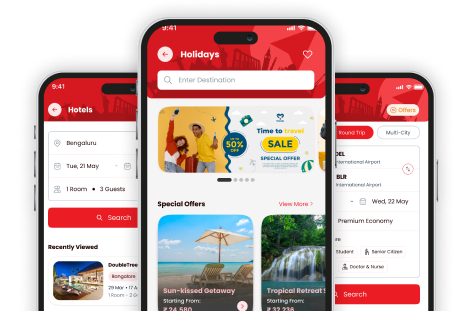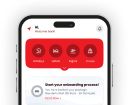Egyptian Dollar Fact
....Read More
sotc_table_srp" border="1" cellpadding="5">
|
Overview
|
Egyptian Pound |
| Currency Name |
Egyptian Pound |
| Short Name |
EGP |
| Symbols |
LE,L.E., E£, ج.م |
| Unit |
1/100 PIASTRE (SYMBOL: PT.); 1/1,000 MILLIEME |
| Frequently Used Currency (Denomination) |
1 PIASTRE, 5 PIASTRE, 10 PIASTRE, 20 PIASTRE, 25 PIASTRE, 50 PIASTRE, LE 1 |
Egypt Currency
Situated between Asia and Africa and linked by the Sinai Peninsula, Egypt also known as the Arab Republic of Egypt, is home to one of the Seven Wonders of the World, the Great Pyramid of Giza. Book the Egypt tour packages to appreciate this marvel. This popular destination also boasts of some iconic landmarks like the Egyptian museum, the Luxor Temple and the Great Sphinx of Giza. Carrying the Egypt currency is mandatory when travelling to Egypt.
Egypt currency information
The official Egypt currency, the Egyptian Pound or EGP, is also denoted as LE which is the Egypt currency name in French and stands for livre égyptienne. 100 piasters make one Egyptian pound. In Arabic, gineih denotes the Egyptian Pound and qirsh is the Egypt currency name used for piaster.
E£ or in Arabic ( ج.م) is the symbol used for Egypt money though some online currency exchange sites also use the symbols like E£ or £E.
The Egyptian Pound which is the Egypt currency name is mainly a paper currency and has many smaller denominations. 1 EGP = 100 qirsh = 1000 millemes. There are coins used for the fractions of the Egyptian Pound.
The paper notes come in 1, 5, 10, 20, 50, 100 and 200 denominations and the coins are available for 1EGP, 50, 25 and 10 piaster.
1 GBP roughly equals 20.62 EGP and 1 EUR is around 17.41 EGP. 1 USD can be purchased for 15.78 EGP.
History of Egyptian Currency
Egypt did not have national Egypt money before gold and silver coins were introduced. The year 1834 was when a new currency based on the bimetallic system was introduced and in the year 1836, the first Egyptian coin was coined and circulated.
Later, however, Egypt had to abandon the bimetallic system because of countries adopting the gold standards and because of the fluctuations in the value of silver. The Gold Egyptian Pound came into existence in the year 1885.
The National Bank of Egypt was formed in the year 1898, when Egyptian banknotes started to get issued. In the year 1914, the Egyptian pound banknote became the monetary unit of the country and the monetary system was changed to the standard paper money. Banknotes in various denominations were produced from Dec 1968 by the Central Bank of Egypt
Best place to exchange currency in Egypt
It is better if you change the currency into Egypt money after your arrival to Egypt. Shop around a bit to get the best exchange rate and always use an online currency converter to compare the current forex rate before you exchange your home currency in Egypt. It lets you judge whether or not you are getting a good deal. Ask for the final amount that you will receive after all the commission and charges have been deducted.
There are currency exchange shops on the streets in Egypt. The currency can be exchanged at the banks, the money exchange counters, and in some hotels. However, the hotels may not offer the best rate.
Withdrawing Egypt money from local ATM is also an option but the bank charges a foreign transaction fee on every withdrawal. If you opt for this option then withdraw a bulk amount each time.
Digital transactions in Egypt
Debit and credit cards are accepted in Egypt. Visa, MasterCard, Diners Club, and American Express cards are accepted in the big restaurants and hotels and also in the major cities like Cairo and Alexandria. So carrying lots of notes and coins is a must, especially when traveling to the smaller cities in Egypt.
Your bank should be intimated before your card is swiped in a foreign country else the bank may flag off your card sensing some suspicious activity on it. Always choose to get charged in the Egypt local currency when you swipe your card in Egypt for a better rate.
Check with your bank before you leave your country about the charges to withdraw money from a local ATM in Egypt. It may also be possible that your local bank has a branch in Egypt.
Tipping in Egypt
Baksheesh or tipping is practised in Egypt and it is important to know about tipping etiquettes before you travel to Egypt.
There is no hard and fast rule on the amount that should be given as a tip. Tipping is important in Egypt but it is not a compulsion every time. If you wish to tip, then tip in the Egypt Cairo currency.
Roughly you may want to tip 3-5 LE to the porter for every bag, 5-10 LE to the maid per day and 5-10 LE to the waiter for every meal at the hotel. Restaurants in Egypt usually expect 10% of your bill as a tip.
....Read Less





